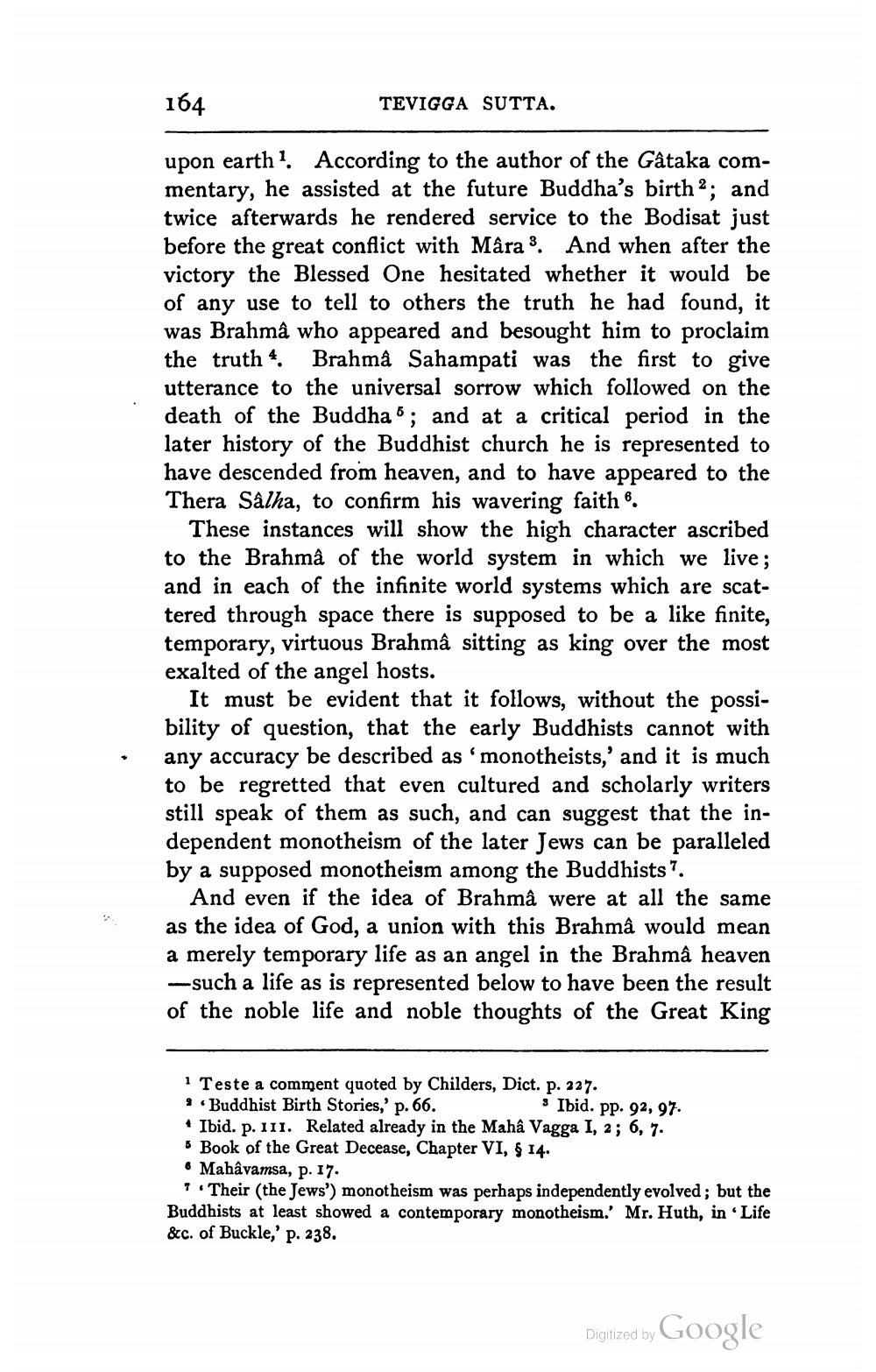________________
164
TEVIGGA SUTTA.
upon earth. According to the author of the Gâtaka commentary, he assisted at the future Buddha's birth; and twice afterwards he rendered service to the Bodisat just before the great conflict with Mara 3. And when after the victory the Blessed One hesitated whether it would be of any use to tell to others the truth he had found, it was Brahmâ who appeared and besought him to proclaim the truth 4. Brahmâ Sahampati was the first to give utterance to the universal sorrow which followed on the death of the Buddha 6; and at a critical period in the later history of the Buddhist church he is represented to have descended from heaven, and to have appeared to the Thera Salha, to confirm his wavering faith.
These instances will show the high character ascribed to the Brahmâ of the world system in which we live; and in each of the infinite world systems which are scattered through space there is supposed to be a like finite, temporary, virtuous Brahmâ sitting as king over the most exalted of the angel hosts.
It must be evident that it follows, without the possibility of question, that the early Buddhists cannot with any accuracy be described as 'monotheists,' and it is much to be regretted that even cultured and scholarly writers still speak of them as such, and can suggest that the independent monotheism of the later Jews can be paralleled by a supposed monotheism among the Buddhists?.
And even if the idea of Brahmâ were at all the same as the idea of God, a union with this Brahmâ would mean a merely temporary life as an angel in the Brahmâ heaven -such a life as is represented below to have been the result of the noble life and noble thoughts of the Great King
1 Teste a comment quoted by Childers, Dict. p. 227. Buddhist Birth Stories,' p. 66.
3 Ibid. pp. 92, 97. + Ibid. p. 111. Related already in the Maha Vagga I, 2; 6, 7.
Book of the Great Decease, Chapter VI, $ 14. 6 Mahavamsa, p. 17.
7. Their (the Jews') monotheism was perhaps independently evolved; but the Buddhists at least showed a contemporary monotheism.' Mr. Huth, in Life &c. of Buckle,' p. 238.
Digitized by Google




